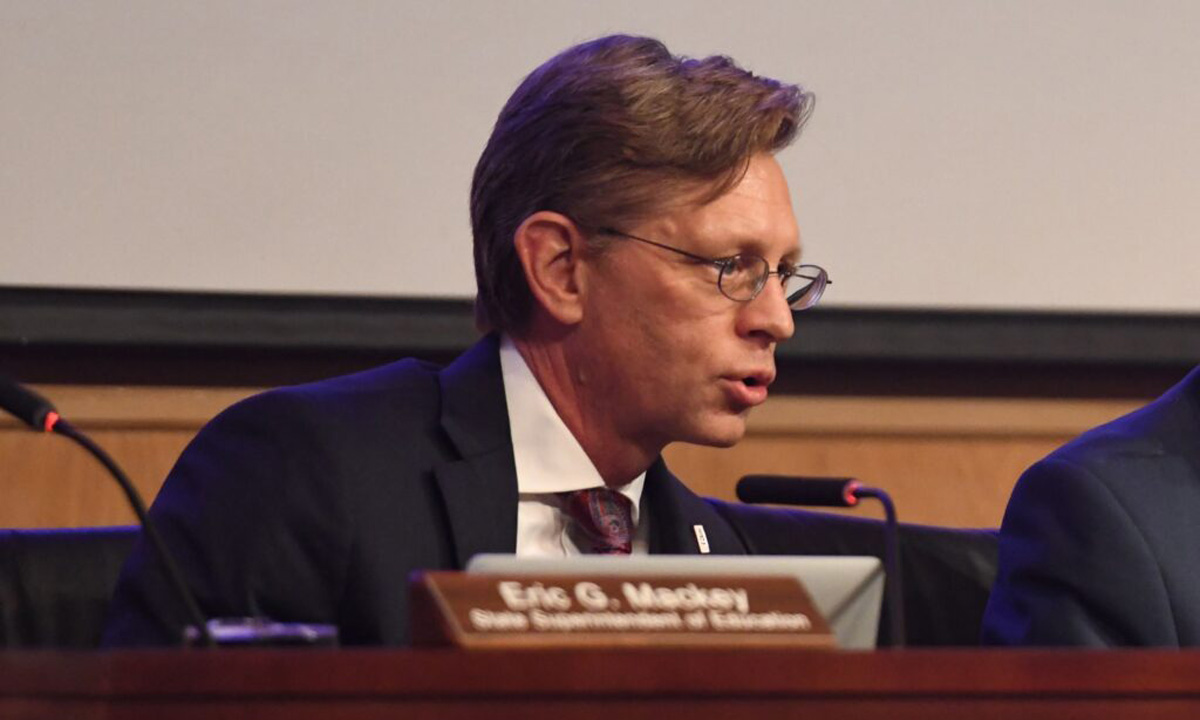Alabama Department of Education Wants to Give Stipends for Special Ed Teachers
Program would aim to retain and recruit personnel.

Get stories like this delivered straight to your inbox. Sign up for The 74 Newsletter
Jennifer Church, the lead special education teacher at Pelham Ridge Elementary School in Pelham, knows how much her colleagues do before stepping into a classroom.
“The referral meetings, eligibility meetings, IEP (individualized educational plan) meetings, the parent contacts just to organize all of that,” she said. “Writing the IEPS … providing the services to the students each day and then also helping with any general education assignments that need to be helped with in the classroom.”
And to keep special education teachers in place, the Alabama State Department of Education is asking the Legislature for a little bit more.
The department’s budget request includes a call for a stipend for special education teachers in the hopes of recruiting new teachers and retaining existing ones in areas with shortages.
Michael Sibley, spokesman for the department, said over email that the stipend amount requested is $5,000 and 20% ($1,000) benefits for each teacher.
A new teacher in Alabama with a bachelor’s degree would make $44,226 in fiscal year 2024. A new teacher in Mississippi at a bachelor’s level would make $41,500 in the 2023-34 school year. A new teacher in Georgia with a bachelor’s degree would make $41,092 in fiscal year 2024. As of July, the base teacher salary in Tennessee is $42,000.
Special education is a term that covers a range of specialties, and special education teachers work with students with a range of needs. Some of those specialties have greater shortages than others. But the department for now but, for now, they are looking at a flat stipend across the board for special education teachers.
Mackey said the goal is to convince people to become special education teachers.
“This year, the Legislature provided a $1,000 stipend but it only went to special ed teachers who were paid for out of the state budget, foundation program budget,” he said.
This year’s request would cover teachers paid for by federal and local funds, as well. His goal is to provide the stipends for every special education teacher in the state.
Both Mackey and special education educators across the state have said that it’s important that specially trained teachers are the ones who work with special education students.
“If you’re a parent of a child that has these really severe needs, then you want to make sure you have the most qualified teacher working with them,” he said.
Akeliah Palmer, a collaborative resource and special education teacher at Edgewood Elementary School in Selma, said that she has about 30 students on her caseload.
She said that special education is hard to staff, so she hopes the stipend might help in recruiting.
“For them to keep the stipend would be a great idea because it may recruit more workers to come over to [special education],” she said.
Church said that forging personal relationships is also important for her role as a special education teacher.
“It’s not just one blanket plan for the children,” she said. “It’s individualized to each child. So we write these for their strengths, their weaknesses, the services that they need. It also has to be legally defensible.”
Cynthia Rysedorph, special education department chair at Mountain Brook High School, said that she thinks a stipend could encourage teachers to stay in the classroom.
“It was somewhat empowering, I think, just to feel recognized,” she said about this past year’s stipend..
Retention is critical, Mackey said, because of the volume of work special education teachers do.
“Because of special ed is obviously an area that’s intense focus, there is a lot of additional paperwork because the significance of some federal rules around that, so we often hear teachers say, ‘You know what, I’m going to leave teaching special ed, and just teach fourth grade, because it’s the same pay,’” he said.
Mackey said that the department is targeting teachers trained and certified to teach both special education and elementary general education. Some of those teachers might have gone to general education, and he wants the stipend to encourage them to come back to special education. He said those teachers are certified under collaborative special education.
For now, he said, the department is looking at a flat stipend, but Mackey left open the possibility of offering more in areas with particular shortages.
“That’s something certainly could be discussed,” he said. “Like, you know, the Legislature comes back and wants to talk about, ‘Well, what if we do a different amount for a child, for a teacher who has students with learning disabilities versus one with students who have medical disabilities?”
Last year, the Department asked for $68 million and received $4.6 million for special education stipends. This year, the department has requested for $34 million. House education budget chair Danny Garrett, R-Trussville, said in October he did not have any information about the funding this year going up as he has not seen the request or had discussions.
The Alabama State Board of Education’s budget request goes to the governor’s office. The governor makes a recommendation of her version that then goes to the Legislature who will approve their version of the budget.
Alabama Reflector is part of States Newsroom, a network of news bureaus supported by grants and a coalition of donors as a 501c(3) public charity. Alabama Reflector maintains editorial independence. Contact Editor Brian Lyman for questions: info@alabamareflector.com. Follow Alabama Reflector on Facebook and Twitter.
Get stories like these delivered straight to your inbox. Sign up for The 74 Newsletter

;)